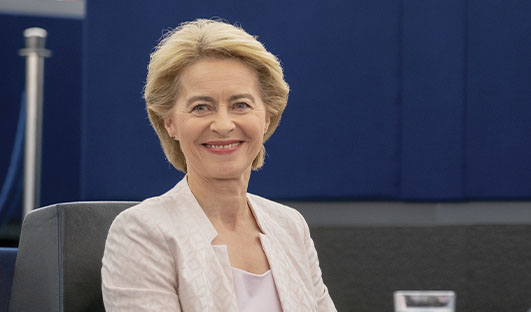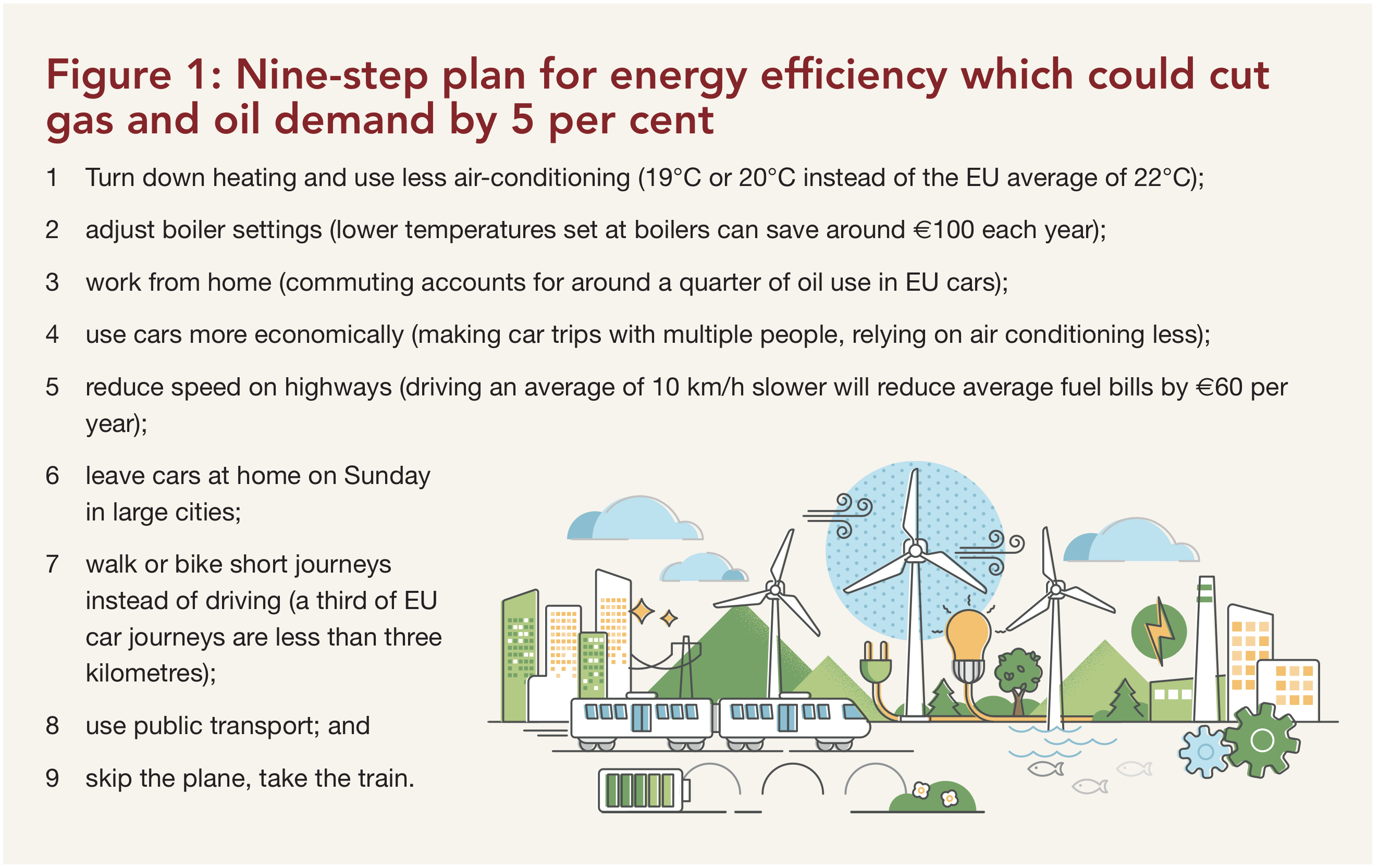REPowerEU: Speeding up the transition

A planned €210 billion investment by the European Commission aiming to wean the EU off Russian fossil fuels by 2027 has mandated a faster transition to green energy.
In May 2022, EU leaders adopted the REPowerEU plan, drafted in response to Russia’s invasion of Ukraine and recognising the need to transition away from current spending of €100 billion per year.
Russia is currently Europe’s top gas supplier, sending 40 per cent of the bloc’s gas and 27 per cent of its imported oil and the plan outlines how the EU intends to negotiate the immediate gas crisis but also deliver on promises to wean itself off Russian energy by 2030.
The three-pronged approach targets energy savings, diversification of energy supplies, and accelerated roll-out of renewable energy.
Interestingly, as well as diversifying supply, the plan presents an opportunity to accelerate further the EU’s planned renewable rollout and decarbonisation targets. The Fit for 55 package produced as part of the European Green Deal set ambitious targets of greenhouse gas emissions reductions by 2030 of 55 per cent, targeting climate neutrality by 2050.
Included in the package are plans to review the Renewable Energy Directive and increase the EU’s target of at least 32 per cent of renewable energy sources in the overall mix to at least 45 per cent by 2030. However, the REPowerEU plan has now proposed increasing that target further to 45 per cent, significantly higher than current levels of 22 per cent of EU energy consumed as renewable.
Underpinning this increase in ambition, REPowerEU has proposed a range of measures including, but not limited to:
• an EU solar strategy to double current capacity by 2025 and install 600GW by 2030;
• a doubling of the rate of heat pump deployment;
• recommended planning changes to recognise major renewable projects as “an overriding public interest”;
• a target of 10 million tonnes of domestic renewable hydrogen and a further 10 million tonnes of imports, with two delegated acts on the definition and production of renewable hydrogen; and
• a biomethane action plan to increase production to 35bcm by 2030.
Energy efficiency will form a large part of efforts to navigate from dependence on Russian fossil fuels and the plan points to energy savings as “the quickest and cheapest” way to address the current energy crisis and reduce bills. The EU Commission has proposed increasing its binding energy efficiency target from 9 per cent to 13 per cent. In addition, it has published a communication detailing short-term behavioural changes, which it estimates could cut gas and oil demand by 5 per cent. Developed in association with the International Energy Agency (IEA), the Commission has presented a nine-step plan to achieve immediate energy savings through voluntary choices (see Figure 1).
The plan also encourages member states to use fiscal measures to encourage energy savings, suggesting examples such as reduced VAT rates on energy efficient heating systems, building insulation and appliances and products.
Diversifying supply
Outside of measures efficiency and increased renewables, the EU recognises the need to diversify supply. In April 2022, the EU established its Energy Platform, a voluntary coordination mechanism supporting the purchase of gas and hydrogen for the EU at affordable prices and phasing out dependency on Russian gas. The Commission is considering a joint purchasing mechanism, much the same as that used for the common vaccine purchasing during the pandemic and has suggested legislating to mandate member states to diversify gas supply.
The EU External Energy Strategy adopted as part of REPowerEU “prioritises the EU’s commitment to the global green and just energy transition, increasing energy savings and efficiency to reduce the pressure on prices, boosting the development of renewables and hydrogen, and stepping up energy diplomacy”.
Industry
Measures suggested under REPowerEU in the form of energy savings, efficiency, fuel substitution, electrification, and an enhanced uptake of renewable hydrogen, biogas and biomethane by industry could save up to 35bcm of natural gas by 2030, on top of what is foreseen under the Fit for 55 proposals, according to the EU Commission. These measures include: carbon contracts for difference to support green hydrogen uptake by industry; utilisation of emission trading revenues to divert Russian fossil fuel dependency; establishment of an EU Solar Industry Alliance and skills partnership.
Finance
The Commission has described the additional €210 billion to 2027 investment required for REPowerEU as a “down-payment” on independence and security in the context of €100 billion annual savings to be made from cutting Russian fossil fuel imports. However, it says that investments must be met “by the private and public sector, and at the national, cross-border and EU level”.
Detailing the levels of investment, EU Commission President Ursula von der Leyen said: “All of this will of course require massive investments and reforms. We are mobilising close to €300 billion. Approximately €72 billion will be in grants and approximately €225 billion in loans. This will include some financing (around €10 billion) in missing links for gas and LNG so that no member state is left in the cold.
“And up to €2 billion for oil infrastructure in view of stopping the shipment of Russian oil. All the rest of the financing, that is 95 per cent of the overall financing, will go into speeding up and scaling up the clean energy transition.”






